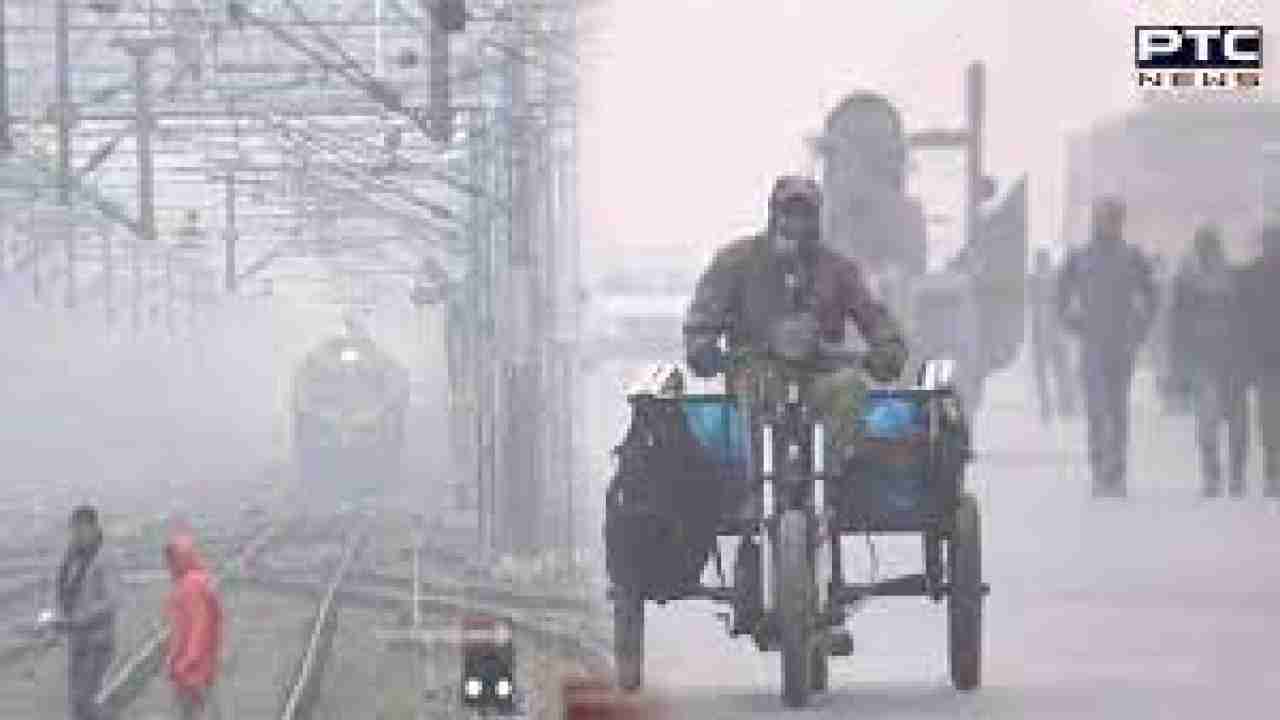Cold wave and dense fog disrupt life in Delhi, air quality remains Poor; several trains cancelled
Unchahar Express (14217) was delayed by a staggering 215 minutes, while the Kaifiyat Express (12225) was running late by 178 minutes

Weather update: The national capital continues to reel under intense cold waves and dense fog, with the ongoing chill leaving residents struggling through the wintry conditions. Fog has shrouded many parts of Delhi, leading to severe visibility issues, while the air quality remains in the "poor" category, causing further distress.
On January 17, the city woke up to a cold morning, as chilly winds continued to batter the region. Dense fog enveloped the streets, making it difficult for commuters to navigate, and reducing visibility to hazardous levels. The cold weather has been affecting day-to-day activities, while the air quality has compounded the situation.
According to the Central Pollution Control Board (CPCB), the Air Quality Index (AQI) for Delhi was recorded at 294 at 7 am, which falls under the "poor" category. The Delhi Pollution Control Committee (DPCC) reported even higher levels of pollution in various parts of the city.
Areas like Mundka recorded an AQI of 324, while Narela and Nehru Nagar reached 320 and 360, respectively. Patparganj's AQI registered 377, and Okhla Phase-2 reported a level of 351. Vivek Vihar, one of the worst-affected areas, recorded an AQI of 390.
The thick smog has been particularly problematic in the morning hours, as it not only reduces visibility but also contributes to respiratory problems. Many regions like R K Puram, Rohini, and Najafgarh reported AQI readings in the unhealthy category, highlighting the severity of the air pollution. In contrast, areas such as Mandir Marg (144) and Sri Aurobindo Marg (156) saw relatively lower, but still moderate, AQI levels.
AQI scale classifies air quality into six categories:
0-50: Good
51-100: Satisfactory
101-200: Moderate
201-300: Poor
301-400: Very Poor
401-500: Severe
In response to the worsening air quality, officials have urged residents to avoid outdoor activities and take necessary precautions to minimize exposure to harmful pollutants.
The air quality in the city has led to concerns among citizens and environmental groups alike. Following the deteriorating pollution levels, the Commission for Air Quality Management (CAQM) revoked Stage-III measures under the revised Graded Response Action Plan (GRAP) across Delhi-NCR. These measures, which were previously put in place to curb pollution, were lifted as air quality remained below critical levels. However, the CAQM has warned that if the AQI surpasses 400, Stage-IV measures will be immediately reintroduced.
The Supreme Court had earlier emphasized that if the AQI crosses 400, stricter measures should be enforced. The recent air quality data indicates that Delhi is nearing this threshold, making it more likely for the government to reimplement the Stage-IV measures.
Dense fog disrupts rail and road travel
In addition to the cold weather and poor air quality, dense fog has led to significant disruptions in train services across Northern India. The thick fog has affected visibility, causing delays to over 27 trains, particularly those running between Delhi and other major cities. Passengers have been facing inconvenience as many trains are running behind schedule.
The Unchahar Express (14217) was delayed by a staggering 215 minutes, while the Kaifiyat Express (12225) was running late by 178 minutes. Other key trains, including the Prayagraj Express (12418), Vikramshila Express (12367), and AP Express (20805), also experienced delays ranging from 110 to 240 minutes.
Northern India braces for more chill
Meanwhile, the chill has spread beyond Delhi to other parts of Northern India. The iconic Taj Mahal in Agra was enveloped in dense fog, reducing visibility and leaving the monument hidden under a blanket of fog. Mathura in Uttar Pradesh also witnessed dense fog, as winter's grip on Northern India tightens.
